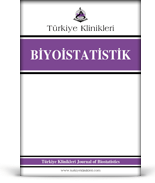Objective: Coronavirus disease-2019 (COVID-19) outbreak emerged in Wuhan-China in December-2019, and has covered the world by rapidly becoming a pandemic, infecting >4.5 million by mid-May 2020, killing >300,000 globally, and >90 million people tested. Several rapid test kits based on antibody response have been developed but the reverse transcriptionpolymerase chain reaction (RT-PCR) approach for its superior sensitivity and specificity. As rapid detection of the virus is vital, we propose a two-stage testing framework that utilizes antibodydiagnostic kits and refers to RT-PCR only when a decision cannot be made. Material and Methods: In this study, using the Bayes formula and independent tests assumption, we developed several 'repeat-testing' strategies to increase the overall sensitivity and specificity of both tests. We compared the false negatives, false positive, burden on the testing centres, and predicted cost among strategies. Results: We have shown that it is possible to increase the diagnostic capabilities of poor tests, 'repeat' testing strategies. The primary advantage of such approaches is the faster diagnosis of cases, which allows for timely isolation, quarantine, and affiliation work. Also such strategies reduce the burden on the RT-PCR testing laboratories, thus, allowing them to focus their efforts to individuals that are more difficult to diagnose. The cost-comparison we conducted also suggests that this proposed is more cost-effective. Conclusion: The two-stage diagnostic strategy for COVID-19 is more efficient regarding pandemic management as it provides the testing results more quickly for the majority of suspected cases, allowing for timely isolation and affiliation work, and more cost-effective, reducing the burden on the healthcare system.
Keywords: COVID-19; antibody test; reverse transcription- polymerase chain reaction test; sensitivity; specificity
Amaç: Koronavirüs hastalığı-2019 (COVID-19) pandemisi, 2019 Aralık ayında Çin'in Wuhan şehrinde ortaya çıkmış ve hızla yayılım sağlayarak tüm dünyayı etkisini altına almıştır. 2020 Mayıs ayının ortasına kadar dünya genelinde 4,5 milyondan fazla kişi COVID-19 salgınından etkilenmiş, 300.000 kişi vefat etmiş ve 90 milyona yakın kişiye test yapılmıştır. COVID-19 tanısını tespit etmek amacıyla antikor tabanlı birçok hızlı tanı kiti geliştirilmiş fakat ters transkripsiyon-polimeraz zincir reaksiyonu [reverse transcriptionpolymerase chain reaction (RT-PCR)] testinin duyarlılığının ve özgüllüğünün daha fazla olması nedeniyle RT-PCR testleri tercih edilmiştir. COVID-19 vakalarının hızlı bir şekilde tespitinin önemi sebebiyle COVID-19 vakalarının tespitinde hızlı tanı kitlerinin kullanıldığı, sadece karar verilemediğinde RT-PCR testine başvurulan 2 aşamalı bir test stratejisi öneriyoruz. Gereç ve Yöntemler: Bu çalışmada, Bayes formülü ve bağımsız testler varsayımı altında, COVID-19 tanısı için kullanılan antikor ve RT-PCR testlerinin duyarlılık ve özgüllüklerini artırmak amacıyla, 2 aşamalı ve tekrarlı bir test stratejisi geliştirilmiştir. Çalışma kapsamında, yanlış negatifler, yanlış pozitifler, laboratuvarlar üzerindeki test yükü ve önerilen tanı stratejileri arasındaki tahmini maliyetler karşılaştırılmıştır. Bulgular: Bu çalışmada, 2 aşamalı ve tekrarlı test stratejisi önerimizle, zayıf testlerin tanısal yeteneklerinin artırılmasının mümkün olduğu gösterilmiştir. Böyle bir yaklaşımın sağladığı ilk avantaj; alandaki izolasyon, karantina ve filyasyon çalışmalarıdır. Ayrıca bu stratejinin RT-PCR laboratuvarların üzerindeki yükü azaltabileceği ve laboratuvarların çabalarını teşhis konulması daha zor olan bireylere odaklayabileceği gösterilmektedir. Çalışma kapsamında yapılan maliyet karşılaştırmasıyla, önerilen yaklaşımın sağlık sisteminde test maliyetlerini düşürdüğü gösterilmiştir. Sonuç: COVID-19 için 2 aşamalı tanı stratejisinin, şüpheli vakaların çoğunda test sonuçlarının daha hızlı elde edilmesini sağladığından, zamanında izolasyon ve filyasyon çalışmalarına fırsat sağladığından ve uygun maliyeti ile sağlık sistemi üzerindeki yükü azaltacağından dolayı, daha verimli olabileceği sonucuna varılmıştır.
Anahtar Kelimeler: COVID-19; antikor testi; ters transkripsiyon- polimeraz zincir reaksiyon testi; duyarlılık; özgüllük
- Li Y, Xia L. Coronavirus disease 2019 (COVID-19): role of chest ct in diagnosis and management. AJR Am J Roentgenol. 2020;214(6):1280-6. [Crossref] [PubMed]
- World Health Organization (WHO). Coronavirus disease 2019 (covid-19) Situation Report-82. 2020: p.13. [Link]
- Lippi G, Simundic AM, Plebani M. Potential preanalytical and analytical vulnerabilities in the laboratory diagnosis of coronavirus disease 2019 (COVID-19). Clin Chem Lab Med. 2020;58(7):1070-6. [Crossref] [PubMed]
- Carver C, Jones N. Comparative accuracy of oropharyngeal and nasopharyngeal swabs for diagnosis of COVID-19. Centre for Evidence-Based Medicine, Nuffield Department of Primary Care Health Sciences, University of Oxford. 2020. [Link]
- Tang YW, Schmitz JE, Persing DH, Stratton CW. Laboratory Diagnosis of COVID-19: Current Issues and Challenges. J Clin Microbiol. 2020;58(6):e00512-20. [Crossref] [PubMed] [PMC]
- Beeching NJ, Fletcher TE, Beadsworth MBJ. Covid-19: testing times. BMJ. 2020;369:m1403. [Crossref] [PubMed]
- He F, Deng Y, Li W. Coronavirus disease 2019: What we know? J Med Virol. 2020;92(7):719-25. [Crossref] [PubMed] [PMC]
- Jason Chin-Huat YAP, Ian Yi Han ANG, Sharon Hui Xuan TAN, Jacinta I-Pei CHEN, Ruth Frances LEWIS, Qian YANG, Rowena Kah Sin YAP, Bob Xian Yi NG, Hao Yi TAN (2020-02-27). COVID-19 Science Report: Diagnostics. ScholarBank@NUS Repository. [Crossref]
- Chan JF, Yip CC, To KK, Tang TH, Wong SC, Leung KH, et al. Improved molecular diagnosis of COVID-19 by the novel, highly sensitive and specific COVID-19-RdRp/Hel real-time reverse transcription-PCR assay validated in vitro and with clinical specimens. J Clin Microbiol. 2020;58(5):e00310-20. [Crossref] [PubMed] [PMC]
- Koçak M. A new testing strategy for the diagnosis of COVID-19 and similar pandemics. Turkiye Klinikleri Journal of Biostatistics. 2020;12(1):107-13. [Crossref]
- T.C. SAĞLIK BAKANLIĞI HALK SAĞLIĞI GENEL MÜDÜRLÜĞÜ. 2020 Yılı Fiyat Tarifeleri ve Analiz Bilgileri Rehberi. Ankara, 2020. [Link]
- Batı'nın sağlık sistemi koronavirüs karşısında çöktü! 02/04/2020.Takvim Gazetesi. [Link]
- This is a report by ULISAT can can be accessed at We accessed it on 15/04/2020. [Link]
- Kaya B. [Effects of pandemic on mental health]. Klinik Psikiyatri. 2020. 23(2):123-4. [Crossref]
- Center for the Study of Traumatic Stress. Psychological Effects of Quarantine During the Coronavirus Outbreak: What Healthcare Providers Need to Know. (Date accessed: 20 Mayıs 2020) [Link]
- Türkiye Psikiyatri Derneği Ruhsal Travma ve Afet Çalışma Birimi. Karantinanın ruhsal etkileri ve koruyucu önlemler. (Date accessed: 20.5.2020) [Link]
- Pinto BS, Fonseca JA, Oliviera B, Correia RC, Rodrigues, PP, Pereira AC, Gonçalves FNR. Simulation of the effects of COVID-19 testing rates on hospitalizations. Bulletin of the World Health Organization. 2020;98:299. [Crossref] [PubMed] [PMC]







.: Process List